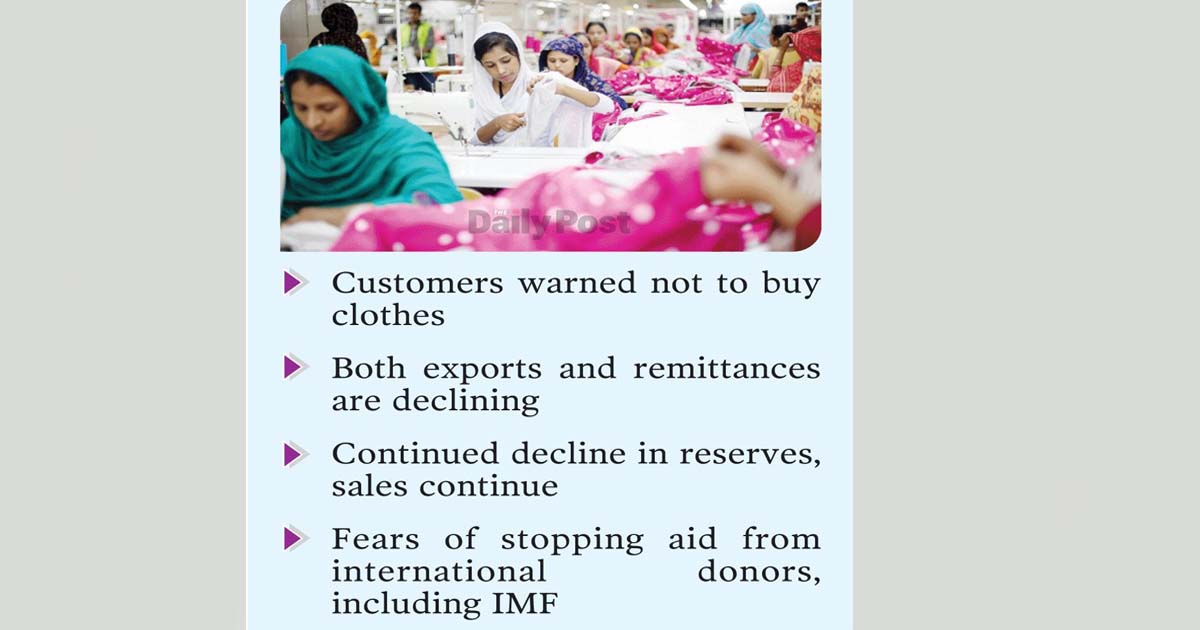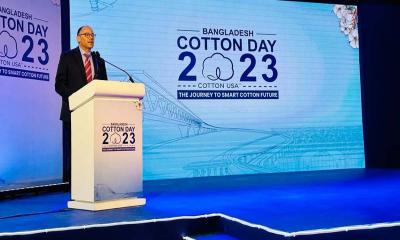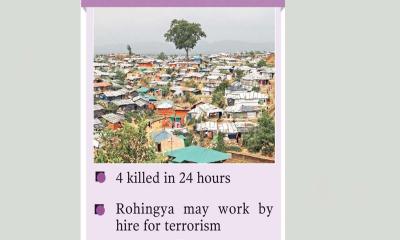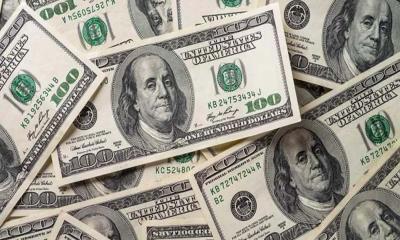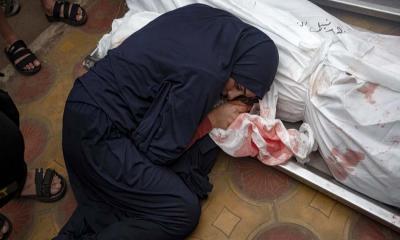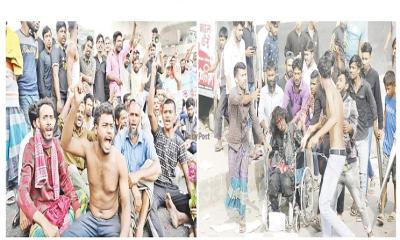The Ready Made Garment (RMG) export quantity decreases day by day. About 4.2 million people are directly involved with this trade.
The Bangladesh Garment Manufacturers and Exporters Association (BGMEA) warned his associates about the conditions several times by sending letters and meeting with them face to face.
The impact has already started with the warning of trade sanctions from the United States and its allies. As a result, there is apprehension and frustration in the export sector. Considering the creation of political influence, the businessmen have been quietly monitoring for so long, but now they are starting to speak clearly about their fears.
Bangladesh Garment Manufacturers and Exporters Association (BGMEA) President Faruque Hassan told the media that the main export sector is expected to be hit. As a result, the crisis is intensifying before the sanction. In the meantime, there is instability in foreign trade due to the decline in exports and remittances. Foreign exchange reserves are continuously declining. The sale of dollars from the reserve to import emergency goods continues. Donor groups, including the IMF, may also stop disbursing money in the diplomatic turmoil. Therefore, economists believed that if there is no political agreement, sanctions will put the country's economy in a delicate situation.
It was known that the economic crisis is intensifying due to the threat of trade sanctions from the United States and the European Union. Entrepreneurs are in fear and despair. Businessmen are passing days in various calculations about foreign trade. The impact of the trade ban on the country's largest export sector has begun. Buyers are putting conditions that the money will not be released if the ban is imposed. In such a situation, the bank may express its inability to open the letter of credit. Banks are being cautious to open LCs as the news spreads rapidly. Importers of raw materials are worried.
BGMEA President Faruque Hasan said pressure is coming from the United States and Europe, the main buyers of the country's apparel sector. At a meeting with stakeholders on Tuesday, he said, "There are issues from the US, you have seen that the president has signed the memorandum, the European Union has also visited, the pressure is also there. Buyers have already given a clause that if there is a sanction, they will not take the goods, even if they pay the goods. Under this clause, our bank will not open LC."
It was known that a buyer company has given a letter of credit for readymade garments by adding the condition of not taking the product or not paying if Bangladesh faces any ban. After this, the matter has started to be discussed. Confirming the matter, Faruque Hasan said that for the first time, a buyer company said in the general condition of the letter of credit that they will not take goods if Bangladesh faces any sanctions. If there is any incident of imposing a ban even after shipping the product, the buyer company will not pay. However, the BGMEA president did not say which buyer company has given such a condition or which garment factory has been given such condition.
Expressing concern over the matter, Faruque Hasan said, "The new condition has increased the anxiety a bit as many banks may not open back-to-back letters of credit against the original letter of credit. The reason for this is that there is some uncertainty about getting money after exporting readymade garments for this new condition. Again, if the buyer does not take the product, it may become stocked."
Economists have also expressed fears that the ban will come in a big blow to the country's economy. They said trade restrictions are a harmful process that can destabilize a country in an instant. This is more problematic in the case of an import-dependent country like Bangladesh as if they fail to earn foreign currency through export, imports will be stopped. Bangladesh imports goods like electricity, gas and oil. Many essential commodities, including baby food, are being imported.
Highlighting the harmful impact of the trade ban, former caretaker government adviser and former professor of economics department of Dhaka University Wahiduddin Mahmud said, "Sanctions on individuals or sanctions on organizations are their business. It doesn't matter. But trade sanctions are a very big issue for Bangladesh. If there are new restrictions on it, there will be a big blow to the economy. Foreign exchange reserves are now a big topic of discussion. I told Bangladesh Bank, keep it at the level it has come down, don't let it go down. Because after that, the speculation will increase a lot."
Although there is a threat of imposing a trade ban on various pretexts such as delicate labor conditions and oppression, the issue is political. Foreign powers have joined the uncertainty surrounding the national elections in Bangladesh. The government is moving towards one-sided elections with the help of anti-Western countries. On the other hand, Europe and America have taken a position in favor of holding elections through negotiation, demanding the continuation of democratic trends. The United States sent a letter to the political parties inviting them for dialogue ahead of the 12th national election scheduled for January 7, but the ruling party has rejected the poison. Then the threat of sanctions began to come one after another. The United States has already imposed a ban on marine animals and products made through it.
Earlier on November 16, the United States announced a new policy to protect labor rights around the world. Unveiling the policy, Foreign Minister Antony Blinken said sanctions would be imposed on those who go against workers' rights, threaten and intimidate workers. The issue of Bangladesh was dragged into it. As a result, the message came from the Bangladesh Embassy in Washington that it could be used for political purposes. On November 20, a letter was sent to the Commerce Secretary expressing 'concern' about the US policy. According to the letter, Bangladesh may be the target of this new policy on labor rights. Because, if workers' rights are violated, there is an opportunity to impose this policy on individuals, organizations or the state.
The European Union has already completed all preparations for similar measures. Centre for Policy Dialogue (CPD) Distinguished Fellow Dr Debapriya Bhattacharya warned about the consequences of one-sided elections for the economy. At present, the country is in three crises; political crisis, economic crisis and foreign relations crisis. The crisis is intensifying. If the election is not fair, the United States can take various steps by order of its existing law. There is a risk of trade sanctions. In the meantime, the issue of Kalpana Akhtar has come to the fore. We have to remember that this is not a fantasy. The words used from the highest place of the government create discomfort in diplomatic relations.
On the other hand, both exports and remittances, the main sectors of the country's foreign exchange earnings, are declining. Remittances in November came down from the previous month. The export sector has fallen for two consecutive months. The International Monetary Fund (IMF) is at risk of closing its lending program. Uncertainty has also arisen regarding the loan waiver promised by the World Bank. Immediately after the ruling party rejected the US call for dialogue, US Ambassador to Bangladesh Peter de Haas held a meeting with officials of the IMF and World Bank in Dhaka. The second tranche of the IMF loan is expected to be approved on December 12. Economists believed that if the loan program is suspended on the board of the organization, other donors will also stop disbursing money as IMF is considered a standard by other organizations. The United States and its allies hold the largest share in the IMF.
At present, the country's reserves are at the bottom. Governor Abdur Rauf Talukder hinted at the need to hold a fair election. Because the reserves that have been falling continuously are now at 15 billion (usable). It is not possible to meet the import expenses of three months. Still, the dollar continues to be sold from the reserve. Because banks do not have enough dollars to settle the LC of emergency goods. In such a situation, economists believed that the country's economy will fall into a deep crisis if the sanctions come and the donor groups stop disbursing money.
ars


